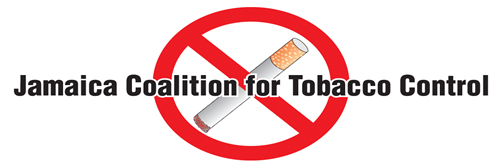- January 13th, 2016
- /
- NCD Stories
- /
- 0 Comments
- /
- Civil society in Jamaica spearheading progress
in tobacco control
The Jamaica Coalition for Tobacco Control (JCTC) has used its influence and expertise to highlight the dangers of tobacco use and push for meaningful tobacco control regulation.

Civil society has a pivotal role to play in the national and regional challenge to non-communicable diseases and should be centre stage in the whole-of-society approach to stemming the epidemic of NCDs.
The Jamaica Coalition for Tobacco Control (JCTC) is well aware of the power of civil society to effect change and that government cannot achieve such change alone. It has used its considerable influence to work with the Ministry of Health and other actors to highlight the dangers of tobacco use and the need to monitor the activities of the tobacco industry.
“We had to raise public awareness about the harm tobacco causes and that was really a challenge. Implementation of the FCTC was slow in earlier years and…there are many competing priorities within the Ministry of Health. We are also battling interference from a powerful tobacco industry.”
Ms Barbara McGaw, Jamaica Coalition for Tobacco Control
In addition, the nine-member Coalition, established in 2002, has pushed hard for implementation of the World Health Organisation’s Framework Convention on Tobacco Control (FCTC), to which Jamaica is a signatory. The current government, elected in 2011, has demonstrated a greater commitment to accelerating the FCTC.
Helping to change laws
The Coalition has also lobbied for legislative change and was instrumental in the promulgation of Jamaica’s tobacco control regulations which became effective in July 2013.
The regulations called for 100% smoke-free public spaces and work places (both indoor and outdoor); the labelling of tobacco products with graphic health warnings covering 75% of the packet and required the tobacco industry to disclose product content. Following a review, the health warnings were reduced to 60% of the packet and further amended regulations were passed in June 2014.
In March 2015, as part of further efforts to implement the FCTC, the government raised taxes on tobacco products by 14.2%, the first increase in five years. More comprehensive tobacco legislation is also being drafted.
Overcoming barriers
Ms Barbara McGaw, the Coalition’s Project Manager, is proud of what has been achieved but acknowledges that there have been a number of barriers to overcome and there is still some way to go.
“We had to raise public awareness about the harm tobacco causes and that was really a challenge. Although Jamaica has signed the FCTC and we are bound to implement it, that implementation had been slow in earlier years and, on top of that, there are many competing priorities within the Ministry of Health. ” She added, “We are also battling interference from a powerful tobacco industry.”
The Coalition is lobbying for even broader tobacco legislation, with an emphasis on advertising, promotion and sponsorship, which often target young people. It has become a leading light in tobacco control in the region and is supporting the forming of coalitions in Trinidad and Tobago and Barbados.
As civil society organisations we can be really powerful and we have to use that power to hold our government accountable for the public health of its citizens.
Ms Barbara McGaw
Building a civil society alliance is seen as a key way to broaden and deepen both efforts in tobacco control and the NCD response in general. Such alliances can increase resources; mobilise individuals and groups; and encourage harmonisation of interventions and messaging, avoiding duplication.
According to Ms McGaw, “As civil society organisations we can be really powerful and we have to use that power to hold our government accountable for the public health of its citizens.”



